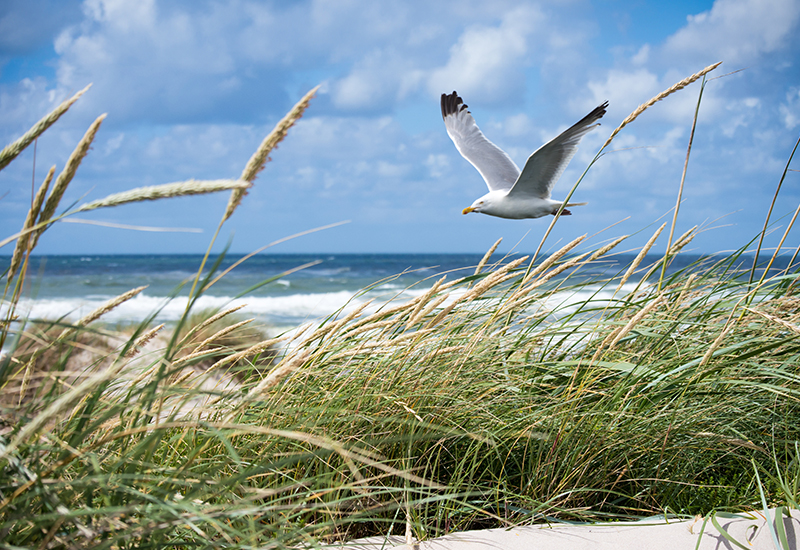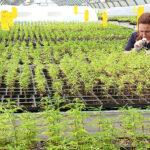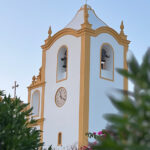I’m sure it wasn’t hiding. Or deliberately pretending not to exist. I have no doubt that it had absolutely nothing to do with me. After all, the wind, as far as we know, doesn’t have feelings. It just exists. And in the Algarve, it doesn’t just exist, it excels. If the wind were competing for an Olympic medal, Lagos would bring home the gold every time. OK, maybe Alvor. Still. Close enough.
But seriously, the wind here is a force to be reckoned with. And who knew? If you’re not from Portugal or you didn’t happen to visit the Algarve on a windy day, you may not know about the wind. If you’re buying a house online, for example, it might not occur to you that north facing is prone to strong gales.
Everyone who has been here for more than five minutes knows this. And even though now, three years after moving, I do recall the real estate agent going on about south-facing terraces, I didn’t really get it. I was either sleepwalking through my life, or the wind happened to be off during my brief visits.
Only once I had already moved here did I understand. The wind here might even be stronger than the Le Mistral in southern France. And entire novels have been written about that wind. It’s so strong it alters growth patterns. Trees grow horizontally out of hillsides from its sheer pummelling force.
Here in the Algarve, it’s a similar situation. And as an aerialist who trains around six metres up on outdoor structures, super strong winds are not fantastic. Fortunately, I’ve found good ways to work with the wind, such as setting training times based on the forecast or changing my schedule for work to be at my computer when it’s blowing extra strong. I have yet to master ‘always’ accepting what is, but I’m getting good at ‘day-by-day’.
Another skill I’m trying to improve on is looking on the bright side. Luckily, there are also a lot of advantages to the wind. For one thing, it lowers the temperature outside. In the summer, when temperatures soar, this is especially helpful. We hardly ever need to turn on our air conditioning here, so it also saves us money.
Another massive advantage is the renewable energy that wind provides. Like solar grids, wind farms provide an excellent source of naturally existing power. In fact, the wind provides almost 24% of Portugal’s electricity (according to statistics from 2020 on wikipedia). The abundance of this natural resource means we also rely less on fossil fuels –and wind energy is better for the environment, too as it doesn’t pollute the air.
So where does this wind come from? During the day, the land bordering the sea heats up, which means the air above the land is hotter than the air above the water. Since warm air above land expands and rises, the cooler, heavier air from the water rushes in to take its place. This creates wind. At night, this process is reversed. In the Algarve, the windiest month is December and the calmest month is September.
The Nortada is a ‘summer’ wind that occurs along the Iberian Peninsula. Summer might be misleading as the vento in the Algarve is a year-round phenomenon. Who knew? Apparently, the windsurfers. And the surfers. And the sailors. And the fishermen. And the bikers. And the locals. All of them.
This brings us to yet another advantage of the wind – it’s a huge asset for local tourism. Water sports, including windsurfing, surfing, and sailing – are some of the best in the world here, thanks to consistently good conditions. According to one study I found conducted in 2016, the surf industry contributes around 400 million euros to the national economy. In 2009, researchers Bicudo and Horta stated that surfing could generate between 1.5 billion and 3 billion euros a year to Portugal’s tourism sector.
Even the language reflects the importance of the wind. This area is actually named for the wind. If you look up ‘Algarve’ on wikipedia, you see that the region is divided by sailing terms related to the wind. Barlavento, the western part of the Algarve, actually translates as ‘windward.’ The eastern bit, Sotavento, means leeward. This is a super useful piece of information. But you probably wouldn’t understand why until you’ve felt it for yourself. At least I didn’t. Then again, I’m not a windsurfer.
So I’m writing about what I didn’t know to help those who so frequently ask this question: “What is it like to live in the Algarve?” Overall, it’s fantastic. It’s safe, the schools are good (and don’t make headlines with classroom shootings), it’s peaceful, it’s affordable, the food is locally grown and delicious, the beaches are stunning and the people are marvellous – both the foreigners and the locals. But keep in mind that the wind here has superhuman strength. If you’re a surfer or a windsurfer, that’s great news.
Recently, a friend described it perfectly– “Portugal is a cold country with a hot sun.” That about sums it up.
Meredith Price Levitt is a freelance writer and aerial silks teacher. She has just opened a new aerial studio near Lagos called The House of Honey, which was blessed just after the New Moon. An American expat, she moved to the Algarve in 2020 after spending 20 years in Tel Aviv.













